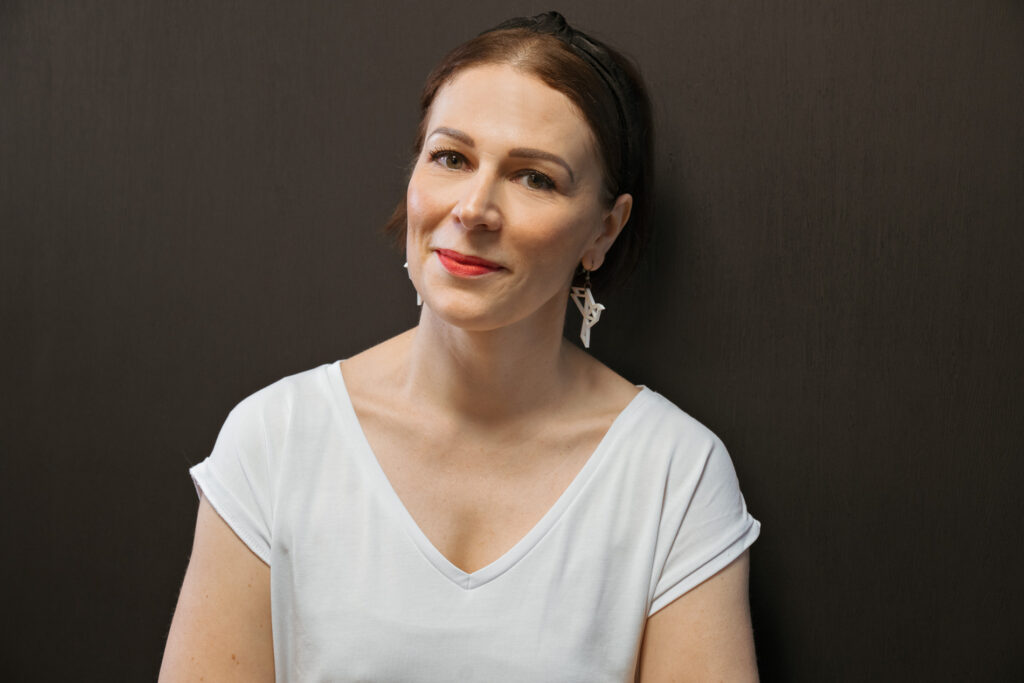Attractiveness or empty promises?

Article – Johanna Pantsar, Bestla Consulting Oy
Internationalization in North Savo requires actions, not just grand speeches
Internationality is a frequent topic in North Savo. The theme appears prominently in strategies, reports, and seminars. Public funding flows into projects, but the impact often remains superficial. In the business sector, the obstacle is often not a lack of skills but rather prejudice, fears, and the genuine willingness to operate differently. My own experience has shown that organizational change toward multiculturalism requires active leadership, multicultural understanding, and a shift from familiar practices.
In my work, I’ve seen numerous situations where a company says it’s interested in international talent “if the right person is found and the opportunity arises.” But what does “the right person” mean? Often it means someone who looks and sounds familiar – a Finnish-background individual with similar educational qualifications. Someone culturally approachable.
In Finnish working life, we trust in the familiar degrees we ourselves value. We are education-oriented, which is a strength in many ways. But it also makes us hesitant to assess skills based on different criteria. When skills are presented in another way – through a different degree title or practical experience abroad – we don’t always recognize their value.
In my work as a bridge-builder, I support companies in recruiting international talent, coach on multiculturalism, and help those who have moved from abroad commit to Finnish working life and understand its principles. At the same time, I see the public sector and its structures. Projects end, responsible persons change, and the same wheel is reinvented again and again. Goals often remain bureaucratic. Or they are too short-term for genuine impact. Even if the reports look good and events meet their metrics, the actual impact remains thin.
A key problem is that multiculturalism is often developed without foreign individuals. Events and decision-making primarily reflect Finnish viewpoints, often based on assumptions rather than experience. Truly functional solutions won’t emerge unless we include those who have lived the everyday realities.
Another common misconception concerns the concept of a multicultural work community. Many organizations think that having one employee with a foreign background means they’ve achieved diversity. The statistics look good, but in practice, building and managing diversity is just beginning. Still, a step in the right direction has been taken. And perhaps a prejudice has been broken.
It’s also important to remember that individuals with foreign backgrounds are not a homogeneous group. The region has both international students and also refugees and immigrants who possess skills, motivation, and the desire to build their place in North Savo. They, too, can be the key to strengthening vitality – if their competence is recognized and barriers are removed.
Attractiveness without retention is not enough
An international professional may come to Finland impressed by what is communicated outwardly. Positively, we present equality, quality of education, safety, environmental values, and a functional society. The brand is solid. But do expectations meet reality? While attractiveness is built, the elements of retention remain fragile.
In practice, this means that international students are attracted to the region, but after graduation, they are left alone – without contacts and networks, without Finnish work experience, without clear pathways into working life. During their studies, they may not build connections with the region’s business sector or gain a map to navigate Finnish working life. Educational institutions play a key role here. How do they support integration into working life already during studies? Do they provide realistic information about what it takes to get a job in Finland – especially regarding language skills?
It must be honestly stated that in Finland, an internationally educated professional rarely finds work matching their education unless they speak Finnish. This is not always discussed directly enough. And although international students naturally bear responsibility for building their networks, it is difficult if doors don’t open – or no one shows where the door even is.
Too often I’ve heard that a highly educated international professional in Finland first takes a job that doesn’t require their education or skills at all. Eventually, they grow tired of chasing impossible opportunities and leave – perhaps for a place where their skills are recognized, and working life has space for them. Finland loses a valuable professional, and the entire educational investment is wasted.
“Retention is not born of words but actions”
Retention is not born of words but actions. It is born from a person feeling wanted, seen, and meaningful. Retention means experiencing belonging and being part of a community. Can we ask more often: “How can we help you succeed here, and what do we need to change to make that possible?”
In the business world, this question could be the starting point for a new kind of thinking. Diversity is an opportunity, although many organizations see it as a risk. By recruiting people from diverse backgrounds, organizations can improve customer insight, employee experience, innovation capacity, and strengthen competitiveness and productivity. This is a globally – and in Finland – proven fact. And I can personally confirm it through my own practical experience.
In many organizations, recruitment is currently not a hot topic – the market is challenging, growth has stalled, or the future is uncertain. Precisely for that reason, now may be the right moment to pause and consider: what will our recruitment strategy look like when growth returns? Will we have the courage and readiness to see potential where we didn’t dare to look before? What kinds of competencies should we be strengthening now with the future in mind?
What should be done in North Savo now?
While a genuine shortage of skilled workers may not yet be widespread, we can – and must – talk about a mismatch between skills and needs. We have skills that are not recognized or utilized, and at the same time, companies have needs that lack suitable candidates.
An aging population, retiring employees, and a decreasing number of young people are not going away. If we build retention and a more diverse working life now, we’ll be a step ahead when the competition for talent intensifies again – also as a region.
Here are a few concrete actions North Savo can take to prepare for the future and build sustainable attractiveness:
1. For companies: Update your recruitment strategy now—Not when urgency hits
Even if new employees are not being hired right now, this is an excellent moment to stop and think about what the recruitment strategy should look like in the future. What kind of skills will your organization actually need in two or five years? And what strategic capabilities should you start building already now?
Now is also a good time to review your recruitment policies and practices:
- What kind of requirements are we setting? Are we truly inclusive in our recruitment and evaluating everyone by the same criteria?
- Do we truly see competence, or do we focus on what feels familiar?
Companies can start small. Cooperation with educational institutions can open doors to future professionals at a low threshold, for example by taking in an international student for an internship or thesis project.
If multiculturalism feels unfamiliar, you don’t have to know everything alone. The most important thing is to lower the threshold to get started – and ask for help if needed. Help is available, and we are happy to support you.
2. For educational institutions: Embed work-life connections into the daily life of international students
International students must not be left alone after graduation. They need work experience, internships, and contacts already during their studies. This requires long-term cooperation between educational institutions and regional companies, as well as the courage to speak openly with students about the importance of Finnish language skills.
Educational institutions also have a major responsibility in providing a realistic picture of employment opportunities in Finland and North Savo after graduation. It must be acknowledged that offering education without genuine job opportunities can lead to disappointment. While such honesty may not always serve short-term business goals or growth in student numbers, could it build long-term trust and sustainable commitment to the region?
3. For the public sector: Fewer overlapping projects, more long-term work
The public sector and project activities do a lot to support the commitment, integration, and employment of international professionals—and many great initiatives have been launched. Going forward, it is increasingly important to ensure the continuity of project work, reduce overlaps, and leverage existing expertise: what has already been done, what has been learned from it, and how can it become a permanent part of structures?
Moreover, development work must include those who are directly affected. Experience-based knowledge from international professionals and the business sector is still an underutilized resource in many areas. Creating genuine impact requires planning and evaluating solutions together. When we aim to build an inclusive society, participation must be real – not just symbolic.
Do we have the courage to look a bit further ahead?
The future of North Savo is not built only on investments, employment figures, or projects – but on people. Attracting international professionals and students to the region is just the first step. Real impact is achieved only when they also want to stay. International professionals seek the chance to build a life, to become part of Finnish working life and society.
We already have many good actors, individual successes, and the will to do better. The next step requires us to look deeper than the surface. To dare to recognize and admit obstacles, to include experience-based knowledge, and to co-create functional solutions. Building a truly attractive and retaining North Savo – including for new Finns – must begin today.
The author is a North Savo-based HR management expert, coach, trainer, and advocate for multiculturalism who has recruited talent from 46 countries to Kuopio. She played a key role in transforming one of the region’s leading companies into the most multicultural workplace in Kuopio. In her current role as an entrepreneur, she supports companies in recruiting and relocating international professionals, trains multicultural work communities to strengthen shared understanding, and offers concrete solutions to support leadership and HR.


